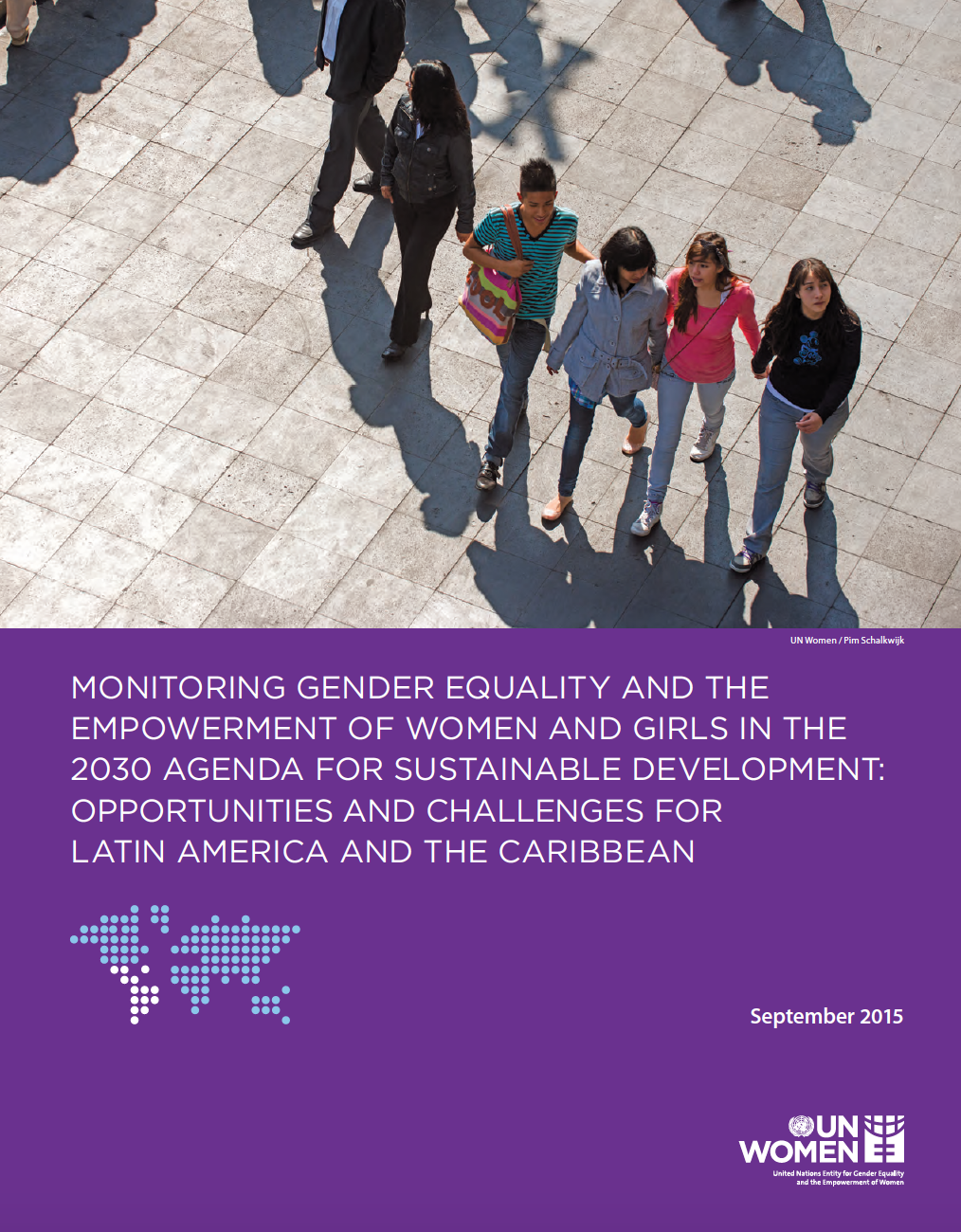
Monitoring Gender Equality and the Empowerment of Women and Girls in the 2030 Agenda for Sustainable Development: Opportunities and Challenges for Latin America and the Caribbean

Gender equality and the human rights of women and girls are reflected across the board in all elements of the Agenda 2030: Transforming Our World: the Agenda 2030 for Sustainable Development, adopted at the General Assembly in September 2015. The Declaration of the document states that "Considering gender equality and empowerment of women and girls through all objectives and goals, will make a major contribution to progress." The prioritization of gender equality and the human rights of women and girls are well reflected across the board in all elements of the Agenda 2030, including the declaration; goals, objectives and indicators; means of implementation; global partnerships, and monitoring and review. This prioritization is specifically highlighted in the Objective Number 5: "Achieve gender equality and empower all women and girls.”
On this matter, the Latin America and the Caribbean region, with the support of UN Women and the United Nations System, has had a consistent leadership at global fora on the importance of substantive equality or de facto equality in principles, commitment and, most importantly, as a course of action in the 2030 Agenda to achieve results in the next 15 years. In this context, the choice of indicators for monitoring the implementation of the 2030 Agenda is critical and may largely determine whether the efforts of the States are being channeled properly and whether they are or are not achieving the goals and targets. In this context, UN Women, presented the document "Monitoring Gender Equality and the Empowerment of Women and Girls in the 2030 Agenda for Sustainable Development: Opportunities and Challenges for Latin America and the Caribbean," which contains the global technical proposal of indicators to monitor gender equality and the empowerment of women in the context of the Sustainable Development Goals (SDGs); and also develops a list of Force indicators for the region in two areas: 1) the economic empowerment of women, from its connection with the use of time and domestic work and unpaid care, and 2) violence against women and girls.
Version available: English / Spanish